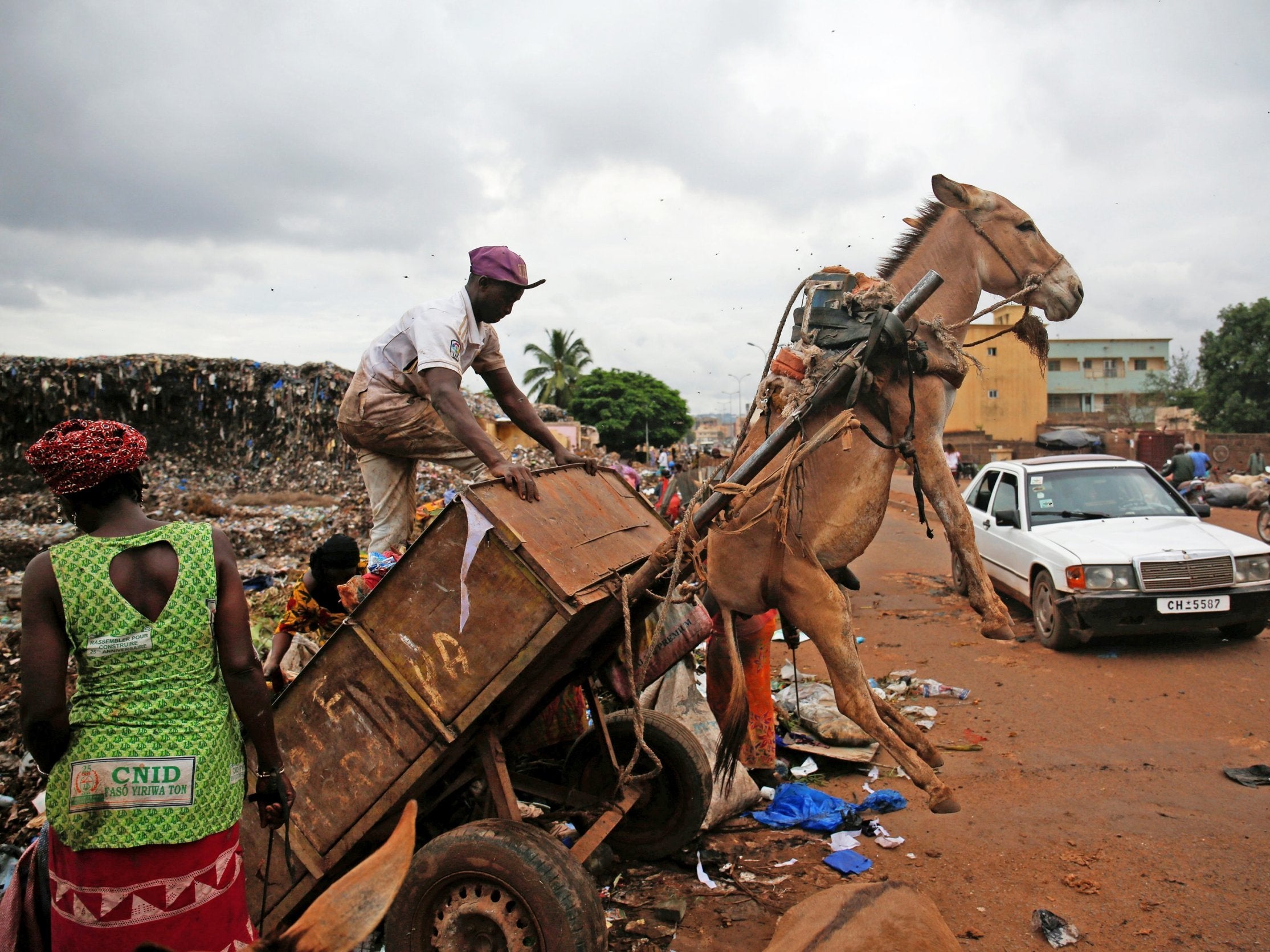In Mali, donkeys help with the fight against waste
The system is overburdened due to a proliferation of informal dumps and the authorities’ failure to remove waste from the local transfer stations. Alessandra Prentice reports

Your support helps us to tell the story
From reproductive rights to climate change to Big Tech, The Independent is on the ground when the story is developing. Whether it's investigating the financials of Elon Musk's pro-Trump PAC or producing our latest documentary, 'The A Word', which shines a light on the American women fighting for reproductive rights, we know how important it is to parse out the facts from the messaging.
At such a critical moment in US history, we need reporters on the ground. Your donation allows us to keep sending journalists to speak to both sides of the story.
The Independent is trusted by Americans across the entire political spectrum. And unlike many other quality news outlets, we choose not to lock Americans out of our reporting and analysis with paywalls. We believe quality journalism should be available to everyone, paid for by those who can afford it.
Your support makes all the difference.In the Malian capital of Bamako, donkey carts driven by young men including 19-year-old Arouna Diabate play a vital role battling the fast-growing city’s waste problem.
Every morning before dawn, Diabate hitches his donkey to a cart and sets off on his rounds, going door-to-door to collect household garbage that he delivers to a local waste transfer station for a monthly salary of about £27.
“I won’t be picking up trash with a donkey cart for the rest of my life, but for now people appreciate us because we help clean up the homes of Bamako,” Diabate says.
Mali is one of the poorest countries in the world and the authorities struggle to provide adequate public services in the capital. Bamako’s population more than quadrupled from the mid-1970s to 1.8 million as of 2009, according to census data.
The population boom has made the issue of waste disposal in Bamako more acute, requiring Diabate’s boss, Moustapha Diarra, to deploy eight donkey carts in his district instead of the two he managed a decade ago.
The system is overburdened due to a proliferation of informal dumps and the authorities’ failure to remove waste from the local transfer stations, Diarra says.
“The garbage piles up so much that you find it in the roads and when it rains, the water stagnates,” he says. “Without sanitation, you can’t have good health.”
Join our commenting forum
Join thought-provoking conversations, follow other Independent readers and see their replies
Comments